Spring water enhances your handmade soap with rich minerals like calcium and magnesium that create luxurious, longer-lasting lather. You'll notice improved texture, vibrant colors, and exceptional skin-nourishing qualities in your finished bars. Local spring sourcing reduces your carbon footprint while providing authentic storytelling opportunities for your brand. Natural filtration guarantees cleaner saponification reactions and unique characteristics that distinguish your products. Proper testing assures safety and consistency, transforming ordinary soap into extraordinary artisanal creations with distinctive regional character.
7 Best Spring Water Benefits For Pure Soapmaking
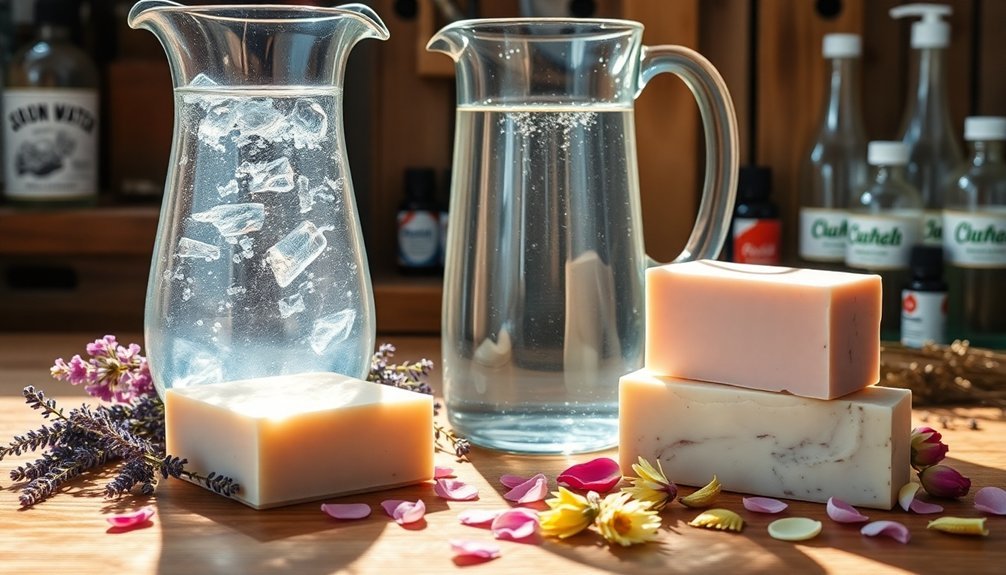
While many soapmakers rely on distilled water for their craft, fresh spring water from the Litchfield Hills of Connecticut offers remarkable advantages that elevate handmade soap to new heights.
You'll notice this pristine spring water enhances the sensory qualities of your soap, creating a product with unique vibrancy and freshness.
When preparing your lye solution, the natural coldness and clarity of spring water produces a more stable mixture, improving your overall soapmaking process.
The distinctive mineral composition contributes to exceptional texture and feel in your finished bars.
Enhanced Mineral Content for Luxurious Lather
The secret to extraordinary soap lather lies in the mineral composition of your water. When you craft soap with spring water, you're harnessing the power of enhanced mineral content that regular tap or distilled water simply can't match.
Spring water naturally contains calcium, magnesium, and potassium that dramatically improve your soap's lathering properties. These minerals create a richer, more luxurious foam that stays stable longer during use. You'll notice the difference immediately—your soap produces resilient bubbles that don't quickly dissolve.
Beyond the aesthetic benefits, this enhanced mineral content nourishes your skin while cleansing. Each spring source offers a unique mineral profile, allowing you to create signature soaps with distinct properties that stand out in the marketplace.
Your customers will feel the difference in every wash.
Local Sourcing for Eco-Friendly Soap Production
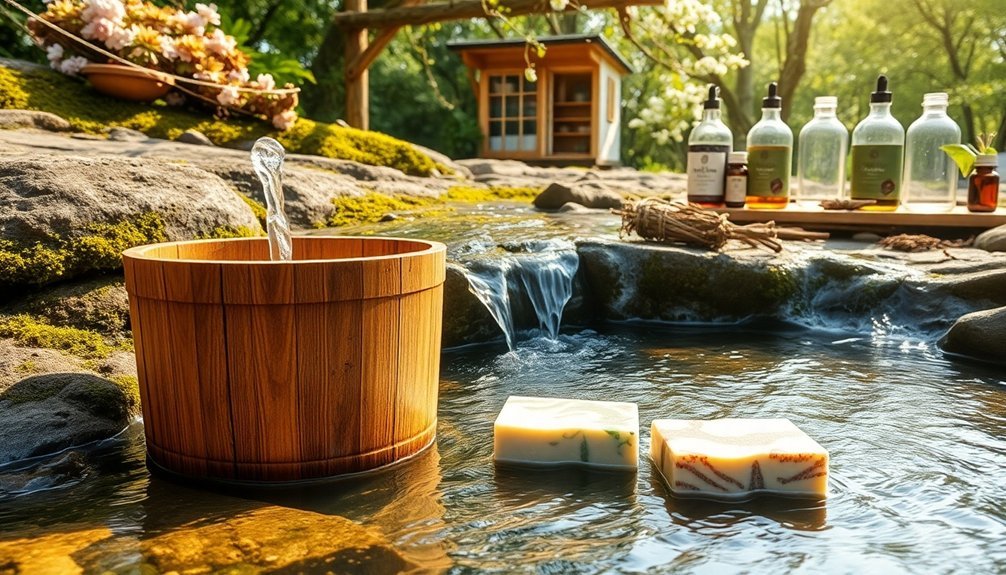
Beyond lather quality, spring water offers another compelling advantage for soap artisans. When you source water locally from springs in your region, you're creating a product with authentic terroir—similar to fine wines. Your soap inherits the distinctive mineral profile of places like the Litchfield Hills, giving it character impossible to replicate with tap water.
Local sourcing greatly reduces your carbon footprint by eliminating transportation emissions from bottled water. You're also supporting regional ecosystems while creating a compelling narrative for your brand. This connection to place resonates with eco-conscious consumers seeking authentic, sustainable products.
Your handcrafted soaps become more than just cleansers—they're expressions of local heritage and craftsmanship. In today's competitive market, this authentic story differentiates your premium products while promoting environmental stewardship in your community.
Unique Soap Characteristics From Natural Water Properties
Spring water infuses your soap with distinct characteristics that simply can't be achieved with ordinary tap or distilled water. The mineral content creates unique soap characteristics including varied textures, unexpected color variations like orange spots, and enhanced lather quality.
You'll notice your cold process soap may cure differently when using spring water. Its naturally cool temperature affects saponification, potentially creating harder bars with different curing timelines than you're accustomed to.
| Water Property | Soap Effect | Marketing Advantage |
|---|---|---|
| Mineral Content | Distinctive texture | "Mineral-enriched" claim |
| Temperature | Altered hardness | "Natural process" appeal |
| Regional Source | Batch uniqueness | Local sourcing story |
| Vibrant Taste | Livelier appearance | Artisanal positioning |
| Natural Purity | Enhanced quality | Premium product justification |
The resulting soap becomes truly one-of-a-kind, giving you a compelling story about your product's natural origins.
Connection to Regional Terroir in Artisanal Products
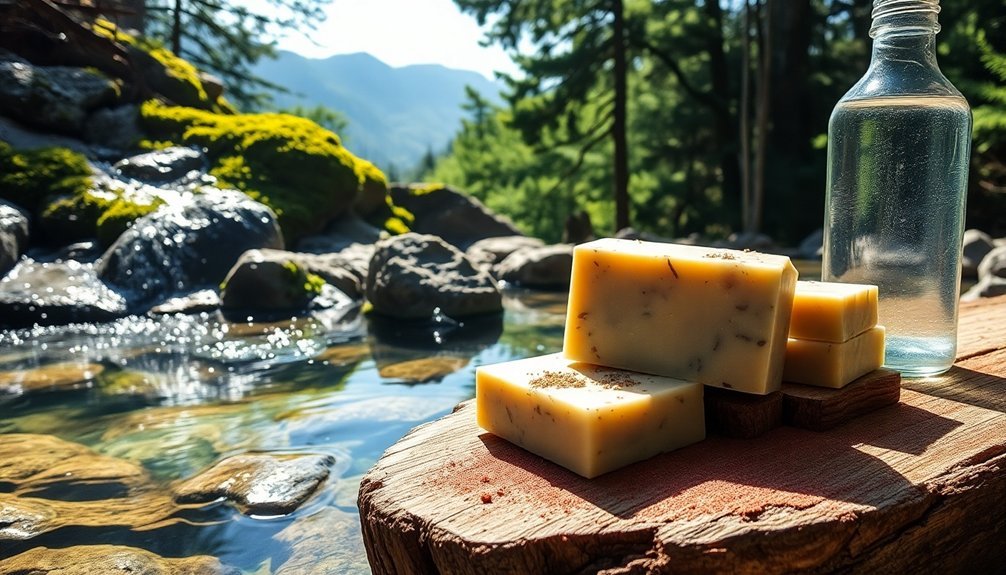
When you incorporate local spring water into your soapmaking process, you're bottling the essence of your region's unique terroir.
Soaps made with Litchfield Hills spring water carry distinctive mineral compositions that affect both texture and performance, setting your products apart in today's competitive market.
This connection to place resonates deeply with customers who value:
- Authenticity – Your soap embodies the purity and historical significance of Connecticut's water collection traditions.
- Sustainability – Using local spring water demonstrates commitment to regional sourcing and environmental responsibility.
- Community – Products that highlight local resources strengthen community bonds and enhance customer loyalty.
Potential Marketing Advantages of Spring Water Soaps
You'll find that soaps made with local spring water offer compelling marketing advantages through their authentic regional narrative.
Your customers will connect with the story of water sourced from pristine Litchfield Hills springs, creating a sense of place and heritage in each bar.
This eco-conscious approach appeals to environmentally aware consumers who seek sustainable, naturally-sourced products for their daily routines.
Potential Marketing Advantages of Spring Water Soaps
Artisanal soapmakers can transform their products into compelling regional stories by incorporating local spring water into their formulations.
You'll differentiate your brand by highlighting the connection between your soaps and the pristine spring water from the Litchfield Hills, creating an authentic narrative that eco-conscious consumers crave.
Your marketing strategy can showcase:
- The unique mineral composition of local spring water that enhances soap quality
- The historical significance of the springs, connecting customers to regional heritage
- The sustainable sourcing practices that appeal to environmentally-aware buyers
Local Story Sells
The narrative power of regional spring water transforms ordinary soap into a compelling product with deep roots in your local landscape. By using Litchfield Hills spring water in your soap formulations, you're not just creating cleansers—you're crafting pieces of local heritage that customers can physically experience.
Your marketing can highlight the centuries-old reputation of these natural springs, creating emotional connections with customers who value authenticity. Spring water's visual clarity and distinctive taste profile become tangible differentiators in a crowded marketplace.
When you emphasize your sustainable sourcing practices, you'll attract environmentally conscious consumers looking for responsible products. The story of your spring water—from underground source to finished soap—creates a narrative that turns simple purchases into meaningful experiences, strengthening customer loyalty and generating word-of-mouth promotion.
Eco-Conscious Appeal
While conventional soap manufacturers rely on processed municipal water, your spring water soaps showcase a genuine commitment to environmental stewardship that resonates with today's eco-conscious consumers.
By highlighting your sustainable sourcing practices, you'll attract customers who value natural production methods and reduced plastic waste.
Transform your eco-consciousness into marketable advantages:
- Reduced carbon footprint – Using local spring water eliminates the transportation emissions and plastic waste associated with bottled water alternatives.
- Sustainable harvesting narrative – Share your spring water collection process to demonstrate respect for natural resources.
- Community conservation partnerships – Connect your soap business to local environmental preservation efforts, creating a product that cleans both body and conscience.
This environmental positioning creates powerful differentiation in a crowded marketplace while supporting genuine sustainability goals.
Quality Considerations When Selecting Spring Water Sources
When selecting spring water for your soapmaking, you'll want to analyze its mineral content to anticipate how these elements will interact with your lye solution.
Regular spring testing protocols, including DEP assessments, can confirm your water source remains free from harmful bacteria and contaminants that might compromise your final product.
Springs with natural filtration through rock layers often provide cleaner water with beneficial trace minerals that can enhance your soap's unique properties without introducing unwanted sediment.
Mineral Content Analysis
Understanding spring water's mineral composition stands as a critical first step for soap artisans seeking quality ingredients.
When analyzing mineral content for soapmaking, you'll need to evaluate levels of calcium and magnesium, which can create soap scum and affect lathering performance in your final product.
For best results, focus on these key aspects:
- Test for iron and manganese content, as these metals cause unwanted orange discoloration and potential instability.
- Seek a balanced mineral profile that enhances moisturizing properties while supporting proper saponification.
- Screen for contaminants that could compromise both safety and quality of your artisanal soaps.
Unlike distilled water, appropriately selected spring water with beneficial minerals can create distinctive soaps with unique characteristics that your customers will appreciate.
Spring Testing Protocols
Selecting appropriate spring water sources requires systematic testing protocols that protect both your soap's quality and your customers' safety. Before incorporating spring water into your soapmaking process, you'll need to verify its purity and composition.
| Test Type | Purpose | Action Required |
|---|---|---|
| Visual Inspection | Check for sediment or inclusions | Reject water with visible contaminants |
| Lye Reaction | Identify quality issues | Watch for cloudiness or film formation |
| DEP Verification | Confirm safety standards | Only use water from regulated sources |
When evaluating your water supply, avoid unregulated springs where bacterial overgrowth risks compromise soap stability. Watch specifically for reactions during the saponification process that might indicate water quality issues. Thorough assessment helps you create unique products while preventing common defects like orange spots that can appear when using variable water compositions.
Natural Filtration Benefits
Natural filtration serves as one of spring water's most valuable assets for soapmakers seeking premium ingredients. As water travels through rock and soil layers, it undergoes a purification process that removes contaminants while infusing beneficial minerals into your soap recipe.
When mixing with sodium hydroxide, these natural filtration benefits produce a cleaner reaction and more consistent final product.
When evaluating spring water sources for your soapmaking needs:
- Verify the water appears crystal clear without sediment, ensuring superior purity.
- Watch for film formation when adding sodium hydroxide crystals, as this indicates potential quality issues.
- Consider supplementing authority testing with your own analysis, especially if you notice unexpected results like orange spots.
These quality considerations help you harness spring water's natural advantages while avoiding common pitfalls in your artisanal soap production.
Frequently Asked Questions
What Is the Best Water for Soap Making?
Distilled water is your best choice for soap making. You'll get consistent, predictable results without minerals or contaminants that can interfere with saponification. If you're using spring water, make certain it's clean and thoroughly tested.
Why Is Spring Water Good for Your Skin?
Spring water's rich minerals hydrate your skin naturally. You'll benefit from fewer irritants that trigger sensitivity. It's packed with elements that nourish and refresh, giving you healthier skin without the harsh chemicals found in tap water.
What Happens if You Don't Use Distilled Water in Soap Making?
If you don't use distilled water in soap making, you'll face unpredictable results like discoloration, texture problems, and potentially violent reactions with lye. You're also risking bacterial contamination and creating soap with reduced shelf life.
Why Is Spring Water Better for You Than Purified?
Spring water contains natural minerals that your body needs, while purified water lacks these nutrients. You'll benefit from these trace elements that support your health, and you won't consume the chemicals often added to purified water.
In Summary
You've discovered how spring water can transform your soapmaking from ordinary to extraordinary. By embracing natural minerals, supporting local sources, and creating unique regional characteristics, you're crafting truly distinctive products. Remember to verify your spring water's quality and highlight its origins in your marketing. Whether you're a hobbyist or professional soapmaker, nature's purest water will elevate your creations and delight your customers.
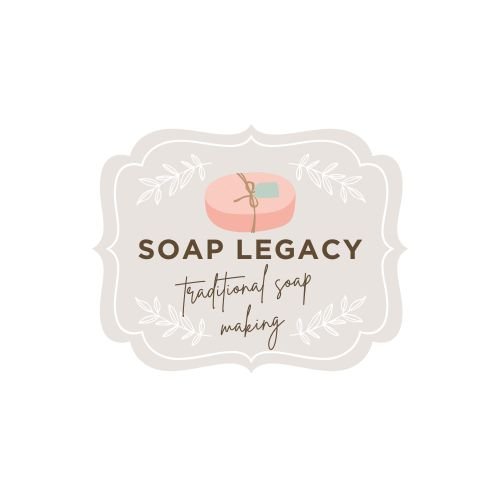
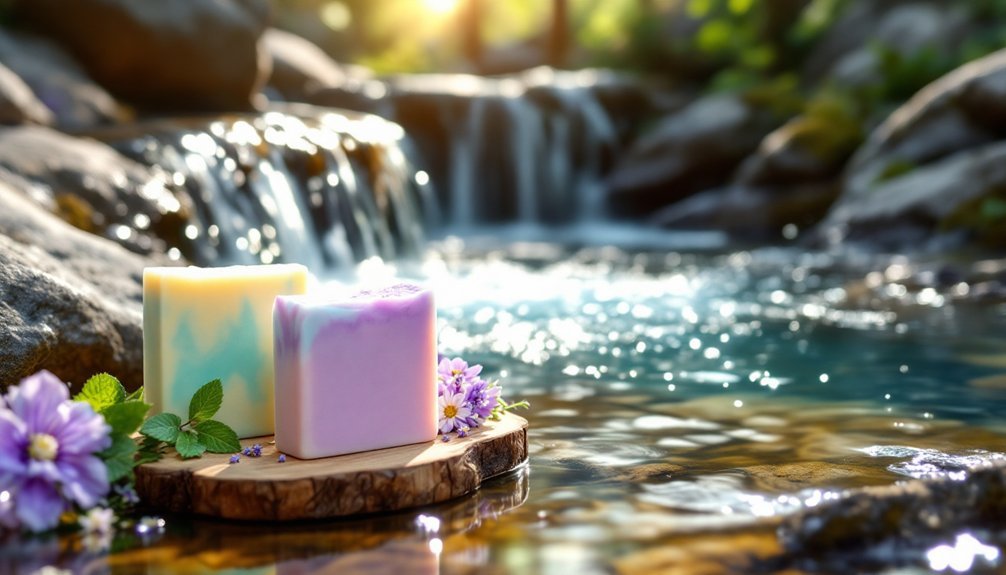
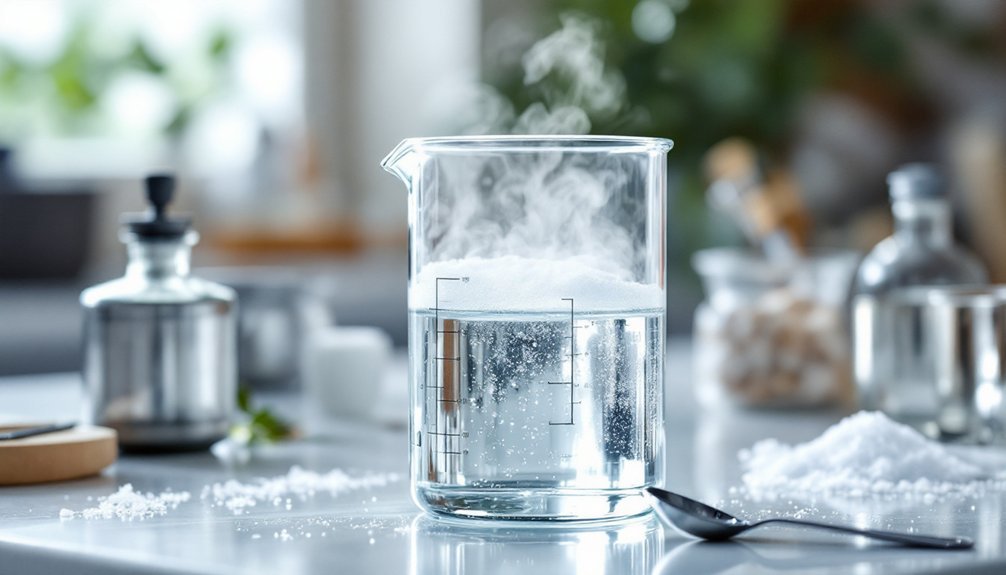
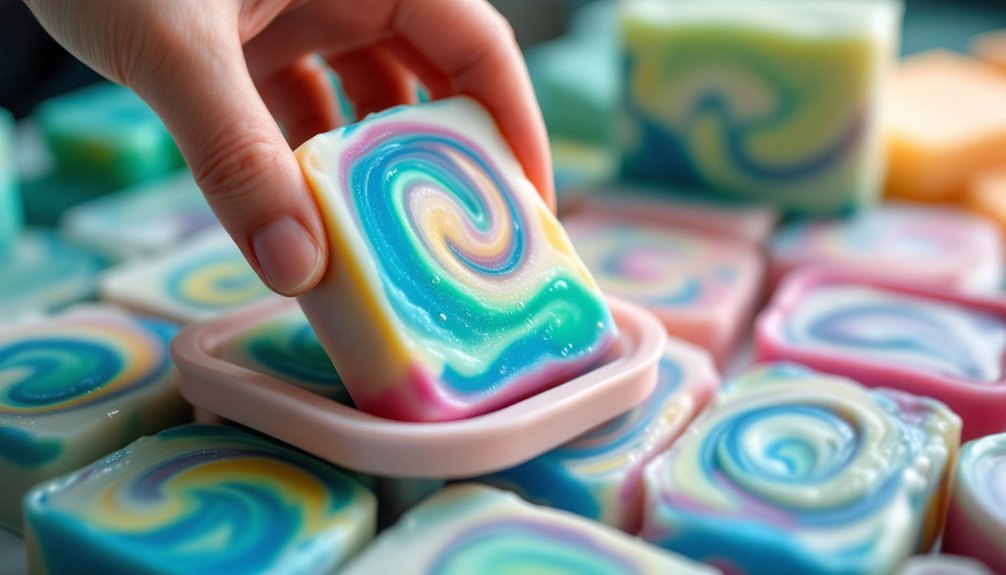

Leave a Reply